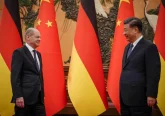The longstanding Rohingya crisis in Myanmar has generated massive human rights violations, becoming a humanitarian disaster. It is not only an internal matter for Myanmar, as it has destabilized the regional tranquility of South and Southeast Asia and triggered a global outcry. In this article, I will illustrate why major states, such as China, India, Russia, and the US, have adopted a policy of overlooking the Rohingya crisis. I have intentionally excluded the potential for a prominent leadership role from the already fragile Muslim world because of both their general absence from the central world leadership and their preoccupation with their own domestic crises.

The Rohingya are the largest community among eight prominent Muslim groups in Myanmar and have lived in its Rakhine State (formerly Arakan) for generations. They are envisaged by the nation’s government and Buddhist population as illegal Bengali immigrants who came from what is now Bangladesh to Rakhine State as laborers during British colonial rule. The Rohingya became stateless through the “1982 Burmese Citizenship Act” passed by independent Myanmar and have experienced several crackdowns since military rule was established in the country in 1962. In 2017, the Burmese military undertook a “clearance operation” of the country in retaliation to an attack allegedly committed by the Arakan Rohingya Salvation Army, a Rohingya rebel group, on several police posts in Rohingya-populated parts of the country. In response, around 800,000 Rohingyas fled Myanmar and took shelter in Bangladesh.
At the start of 2018, a UN team found that Myanmar’s actions against the Rohingya amounted to genocide. Then, in late January of 2020, the International Court of Justice (ICJ) ordered Myanmar to take all necessary measures to prevent genocidal acts against the Rohingya. Though this was a crucial breakthrough, any verdict from ICJ is virtually worthless unless the UN Security Council enforces it. However, none of the permanent members of Security Council or world powers are willing to go beyond providing humanitarian aid. The chart below explores why major world players are reluctant to take action against Myanmar.
Table 1. Major Factors for Powerful States to Ignore the Rohingya Crisis
| World Power | Relationship with Domestic Muslims | Strategic Interests in Myanmar |
| China | Internal Problem with Uyghur Muslims | Containment policy against India, Belt and Road Initiative, arms trade, and natural resources |
| India | Internal Problem with Kashmiri Muslims | Containment policy against China, natural resources, arms trade, and countering insurgency and separatist movements in Northeast India |
| Russia | Internal Problem with Chechen Muslims | Arms trade and natural resources |
| US | Residual post-9/11 Islamophobia | Containment policy against China |
Source: Based on data compiled by the author
All four of these powerful countries have complex relationships with their domestic Muslim population. China, India, and Russia have internal problems with minority Muslim populations: the Uyghur Muslims, Kashmiri Muslims, and Chechen Muslims respectively. Each state believes that these minority groups pose a threat to the territorial integrity of their countries and as a result, has been repressing them. Therefore, any criticism or action taken against Myanmar in defense of the Rohingya can call into question the internal policies of these powers against their domestic Muslim populations. For the United States, there is still trauma from the 9/11 terrorist attacks. Throughout the “War on Terror,” Islamophobia has been highly present in American society. Hence, any robust action taken by the US against Myanmar could cause a domestic backlash, especially if the military is used.
Furthermore, the Rohingya-populated areas of Myanmar have large oil and natural gas reserves, reaching 11 trillion and 23 trillion cubic feet respectively; this has made Myanmar into a strategic partner for the major world powers. This particular area of Myanmar holds great significance for China’s Belt and Road Initiative, which is an ambitious program to enhance regional integration. Similarly, India and Russia’s gas lines and their investment in gas exploration and extraction projects in Myanmar have made the region a crucial geopolitical theater. American interests with its “Pivot to Asia” policy lie in establishing strategic ties with Myanmar to contain Chinese market expansion and influence in Southeast Asia. Additionally, the encirclement policies of China and India try to counter each other’s influence by establishing a strategic alliance network with the opposing nation’s neighbors, including Myanmar. Among all these major powers, however, India is the most dependent on Myanmar, as it helps it to maintain the stability and security of its Northeast region. India uses Myanmar’s intelligence and army to counter separatist movements and insurgencies in the Northeast.
In terms of arms trade, an UN fact finding team has recently found that Russia, China, and India are Myanmar’s top arms suppliers. It is likely that these countries are keeping friendly relationships with the authoritarian Burmese government, despite its appalling human rights record, in order to maintain this lucrative arms business.
Clearly, due to the strategic interests of these powerful states, there is little appetite for a humanitarian intervention in Myanmar. Not China, Russia, India, nor the US has the diplomatic will to pressure the Burmese government to resolve the crisis in a sustainable and peaceful way. The fate of the Rohingyas will likely further deteriorate until the dominant powers alter their current stances to create a collective effort to reach a proper and sustainable solution to the crisis.






